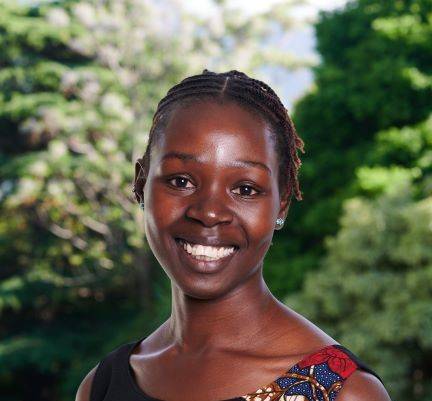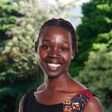
Inside the Programme
Reconciliation as an ACT of LOVE
Reflections from the mid-year Leadership Development Workshop for first year scholars.
The word "reconciliation" can evoke unsettling memories of injustice, violence, and abuse experienced by marginalized populations and all of us in essence. To me, "reconciliation does not mean the absence of justice." This conviction stems from my work with Nyanam Widows Rising, where widowed women face property and land disinheritance, child disinheritance, cultural abuse, and various forms of abuse (sexual, emotional, physical, and mental) from their in-laws.
During the week of June 10-14, 2024, we took a journey into the word “reconciliation” which profoundly shifted my perspective on reconciliation at the second Mandela Rhodes Foundation 2024 scholars’ leadership development workshop. As young African leaders, we explored how we could effectively advocate for national, regional, and global reconciliation, starting with "inner reconciliation." A quote that resonated with me most during this five-day engagement was, “We see the world as who we are,” highlighted all through our discussions using Chichi Agorom's book "The Enneagram for Black Liberation."
In our sessions, we created safe and loving spaces that allowed us to share personal struggles and burdens within the context of the word “reconciliation”. We shared things that have hurt, burdened, and weighed us down. We recognized that to effect change, we must first address our inner selves and learn how to navigate our emotions/fears/pain, and anger as young leaders. The film "A New Country," which revisits South Africa's apartheid history, stirred up deep emotions and questions around justice and reparation. I pondered on the idea of whether monetary compensation for lost lives could ever be enough, and how reconciliation might inadvertently perpetuate further oppression for those most affected.
Day four featured a thought-provoking session with Andy Muranda on "Exploring the meta-narratives and pathways to Decoloniality." Here, we delved into the power of language that shapes history and knowledge. Language is a core component of human interaction, and language is essential for communication, knowledge generation, dissemination, and consumption. It holds the power to build or destroy cultures and histories. So if wielded by the wrong hands, it can wipe out the history of a people completely.
During the session, Andy took us back through history, highlighting great African leaders, philosophers, and innovators. In the quest to know and remember the greatest African leaders to ever have lived, we conducted a mini history test using WhatsApp AI on the evolution of the smallpox vaccine. In this test, we were looking for the mention of Onesimus from West Africa who was then a slave and had shared the smallpox inoculation with Cotton Mather a prominent Boston Minister in 1716. The test was conducted using the question, who is the father of vaccinology? The AI response showed the father of vaccinology to be Edward Jenner an English physician and scientist who developed the first vaccine in 1796.
We pushed back at this response by telling AI it was a lie. In its response, it argued that “the father of vaccinology” is often debated while others attributed it to Louis Pasteur a French Chemist who developed the first vaccines for rabies and anthrax in the 19th century and that his discoveries laid the foundation for modern vaccine developments. To push further, we made our question specific to pre-colonial Africa, and the coverage was wide. The AI, noted the 15th-century smallpox inoculation in Ethiopia, cowpox in West Africa, and scarification in West and Central Africa, and Onesimus's contribution showing how these ancient methods were used to protect against smallpox long before Edwards’ vaccine in 1796. This AI test revealed how African history is intentionally omitted and equally showed us the importance of reclaiming our narratives. Such tests highlight the intentional omission and misrepresentation of historical records. With such understanding, I recognize the need for and importance of holding, safeguarding, documenting, generating, and distributing our history ethically and respectably. A narrative in our lenses as Africans.
We also discussed the dominance of English in education and governance. Many of us recalled being punished for not speaking English in school, and we reflected on why English is still regarded as the language of academic excellence, trade, and governance. This session made us question the impact of colonial languages on our identities and cultures.
We concluded the day enjoying the delicacy of traditional African ice cream by Tapiwa and a discussion led by Coralie Anyetei the Programme Director, of the Mandela Rhodes Foundation, with speakers Judy Sikuza CEO of the Mandela Rhodes Foundation, and Tapiwa Guzha. The discussion inspired us to push boundaries and create safer communities. It invited us into the world of leadership with its hardships and difficulties. We heard of challenges to expect when in top leadership positions, and tips for navigating through some of the complexities. We were reminded that we must drive the change we seek in Africa, the young leaders. My key takeaway from this conversation is what CEO Judy said (kindly note it is paraphrased): “As a leader, find yourself safe communities that allow you to grow. A network of people with whom you share values, and where you can freely and openly talk about leadership challenges and brainstorm solutions. Also, remember to uplift others along the way.”
As Mandela Rhodes scholars, we are committed to engaging in these challenging conversations and making Africa great by harnessing our collective power, talents, and skills.
If Africa is to be seen, known, acknowledged, loved, and glorified for her rich culture, diversity, language, and history, we are the ones to tell her story. - Evelyn Odhiambo
Ms Evelyn Odhiambo (Kenya & Rhodes University, 2024) is pursuing a master's in Journalism and Media Studies at Rhodes University. She is also the Youth and Communications Manager at Nyanam Widows Rising in Kenya.







